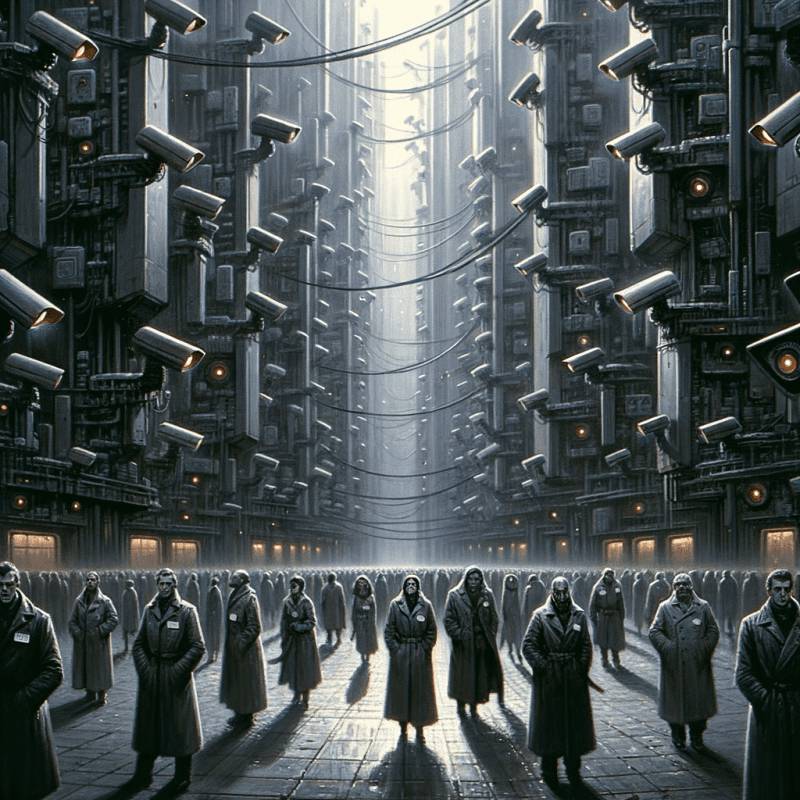Surveillance Society: Unpacking the Frightening Realities of Orwell’s 1984
In George Orwell’s dystopian novel, 1984, the protagonist lives in a society under constant surveillance by an authoritarian regime. This article explores the chilling parallels between Orwell’s fictional world and our modern society, where surveillance technologies have become increasingly pervasive.
The Omnipresence of Surveillance
In 1984, the state uses telescreens—devices that both broadcast propaganda and monitor citizens’ activities—to maintain control. Today, we voluntarily carry devices that track our movements, record our conversations, and even monitor our heart rates. Our smartphones, smartwatches, and home assistants are the modern equivalents of Orwell’s telescreens.
As Shoshana Zuboff, author of The Age of Surveillance Capitalism, puts it, “We thought we were searching Google, but Google was searching us.”1
Data Collection and Privacy Erosion
Orwell’s Big Brother collected data to suppress dissent and control the populace. Today, corporations and governments collect vast amounts of data about us. This data is used to shape our behavior—what we buy, who we vote for, even how we feel.
According to a study by the Pew Research Center, 81% of Americans say the potential risks they face because of data collection by companies outweigh the benefits.2
Manipulation of Information
In 1984, the Ministry of Truth alters historical records to fit the party’s narrative. Today, misinformation and ‘fake news’ can spread like wildfire on social media, distorting our perception of reality.
As Tim Cook, CEO of Apple, warns, “We shouldn’t look at technology as something that enables a few to do what was once impossible to imagine. It should be about helping everyone do what was once unimaginable.”3
Resistance and Hope
Despite the grim parallels, it’s not all doom and gloom. In 1984, Orwell also shows us the power of resistance. Today, there are numerous organizations and individuals fighting for digital rights and privacy.
- The Electronic Frontier Foundation (EFF) works to ensure that technology supports freedom, justice, and innovation.4
- Whistleblowers like Edward Snowden have risked their freedom to expose mass surveillance programs.5
Conclusion
While the parallels between Orwell’s 1984 and our modern surveillance society are unsettling, they serve as a powerful reminder of the need to protect our privacy and digital rights. As we navigate this digital age, let’s strive to ensure that technology serves us, not the other way around.
Footnotes
1. Zuboff, Shoshana. The Age of Surveillance Capitalism. PublicAffairs, 2019.
2. “Americans and Privacy: Concerned, Confused and Feeling Lack of Control Over Their Personal Information.” Pew Research Center, 2019.
3. Cook, Tim. “Apple CEO Tim Cook: Technology Can Help Us Build a More Inclusive Future.” TIME, 2020.
4. “About EFF.” Electronic Frontier Foundation, n.d.
5. Snowden, Edward. Permanent Record. Metropolitan Books, 2019.

